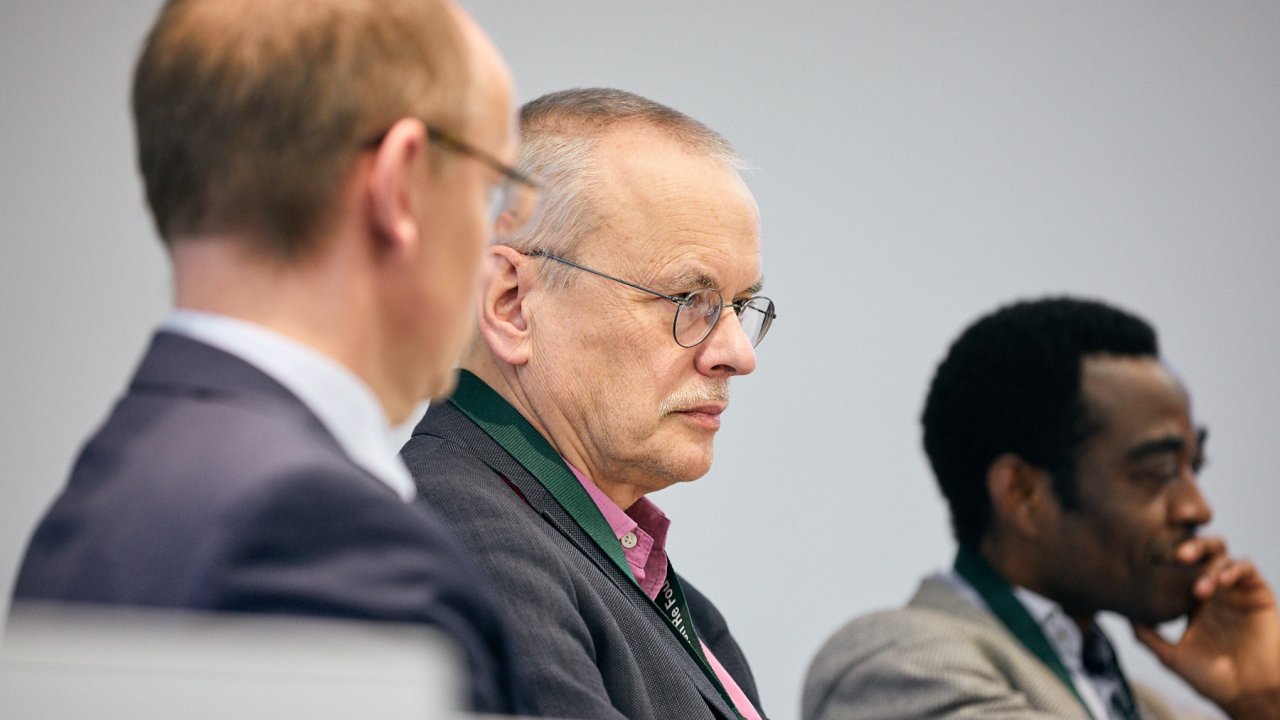
Global poverty – The world in the poverty trap?
Dialogue Forum on 24 January 2019
properties.trackTitle
properties.trackSubtitle
Over the last few decades, the global community has come a long way towards its goal of eradicating absolute poverty. Nevertheless, the problem remains and in many countries the uneven distribution of wealth and earnings is increasing. The 2019 dialogue forums on the theme of “Poor rich world” intend to shine a light on the various facets of poverty and its consequences.

A person is considered extremely poor if he or she earns less than US$ 1.90 per day. Though Kekeritz points out that, given the extreme inflation in many countries, this is a rather arbitrary figure which has to be continually updated. According to the definition, around 740 million people worldwide live in extreme poverty, which is an improvement compared to the past. Nevertheless, the figure remains far too high. Kekeritz sees the solution in a more just financial and economic system. He claims that the current system promotes inequality: one indication is the US$ 7.6 trillion that the global rich have stored in tax havens, and the billions that have been secreted out of Africa for the same reason.

“This is a case of what we call institutionally organised greed”, adds theologian, philosopher and development expert Dr. Boniface Mabanza. He calls “scandalous” the amount of wealth that a few rich individuals have accumulated at the expense of the majority. “Current trade, debt and agricultural policies are increasing the chasm between the rich and the poor”, he says. According to estimates, a full US$ 1.4 trillion was illegally siphoned out of Africa between 1980 and 2012, which is more than all the aid and foreign investment that the continent received during the same period. Mabanza claims that 60% of these funds that leave Africa do so thanks to the creative accounting methods of multinational companies. His recommendation: “We have to take aim at the system itself, and show enough courage to question the economic order that creates such poverty, instead of merely tinkering with the symptoms.”
Learning to work with numbers
Yet there are some positive counter-examples, for example in Botswana. “That country has grown faster than any other over the past few decades”, says Jörg Baten, Professor of Economic History at the University of Tübingen. Even though the landlocked Botswana is basically isolated in southern Africa. In addition, the country has been successful in distributing income from its diamond mines fairly. “The consensus between various stakeholders on economic questions, and a good level of education among women have contributed to Botswana’s success”, says Baten, and points to the importance of teaching women to work with numbers. He claims that women are a key demographic who need to be taught basic arithmetic, so that they can pass the knowledge on to their children and break out of the cycle of poverty. Another major hindrance in fighting poverty is violence: “It is amazing to see how many civil wars have resulted from the increase in income disparity within countries over the last two centuries”, according to Baten.

“Almost every country in the world has a rich upper class”, adds Mabanza. In Congo, for example, he claims that the number of millionaires has increased significantly in the last 20 years: “It is shocking to see how closely the rich and poor live to one another in the capital of Kinshasa.” Mabanza argues that many multinationals have secured mining concessions – often through bribery – at ridiculously low prices, ensuring that only a small number of people profit from them.
Europe’s responsibility
According to Kekeritz, in order to fight poverty we have to work towards a fairer global economic system at the United Nations, yet the OECD – which mostly represents the rich, industrialised countries – consistently blocks any attempt to do so. Another important tool in fighting poverty would be to conclude fairer trade agreements that did not lead to the destruction of local economies. The EU also needs to step in on this issue: we have a moral responsibility, since as former colonial powers we also left some major problems behind when we pulled out. Moreover, we cannot forget many countries’ crippling national debts. “Many developing countries have their backs to the wall, and the situation has become even worse since the financial crisis”, says Kekeritz. He points to the situation in Sri Lanka, for example, where China has secured itself the right to use the port of Hambanota, in the country’s south, for the next 99 years in exchange for debt remission.

A major problem in the current debate and fight against poverty, according to Baten, is our fixation on scandals. He says that certain individual cases – although undoubtedly horrible in themselves – are assumed to be typical, and this is not always true. “I would prefer to see the media report more on everyday life in Africa, instead of just focussing on hunger and catastrophes,” adds Mabanza. People in Germany could then better understand the great potential that African countries actually have.
The UN’s goal to eradicate absolute poverty by 2030 is certainly challenging, even though poverty in many places in the world has indeed lessened over the past few decades. The way to achieve the goal is to reduce income inequality, which the development agency Oxfam makes clear in its annual report. Looking at Asia provides reasons to be optimistic. There, economic growth over the past couple of decades has allowed millions of people to rise up out of poverty towards the middle class.
The next dialogue forum will take place on 21 February on the topic of “Poverty Traps – When risk keeps you poor and poverty keeps you at risk”.